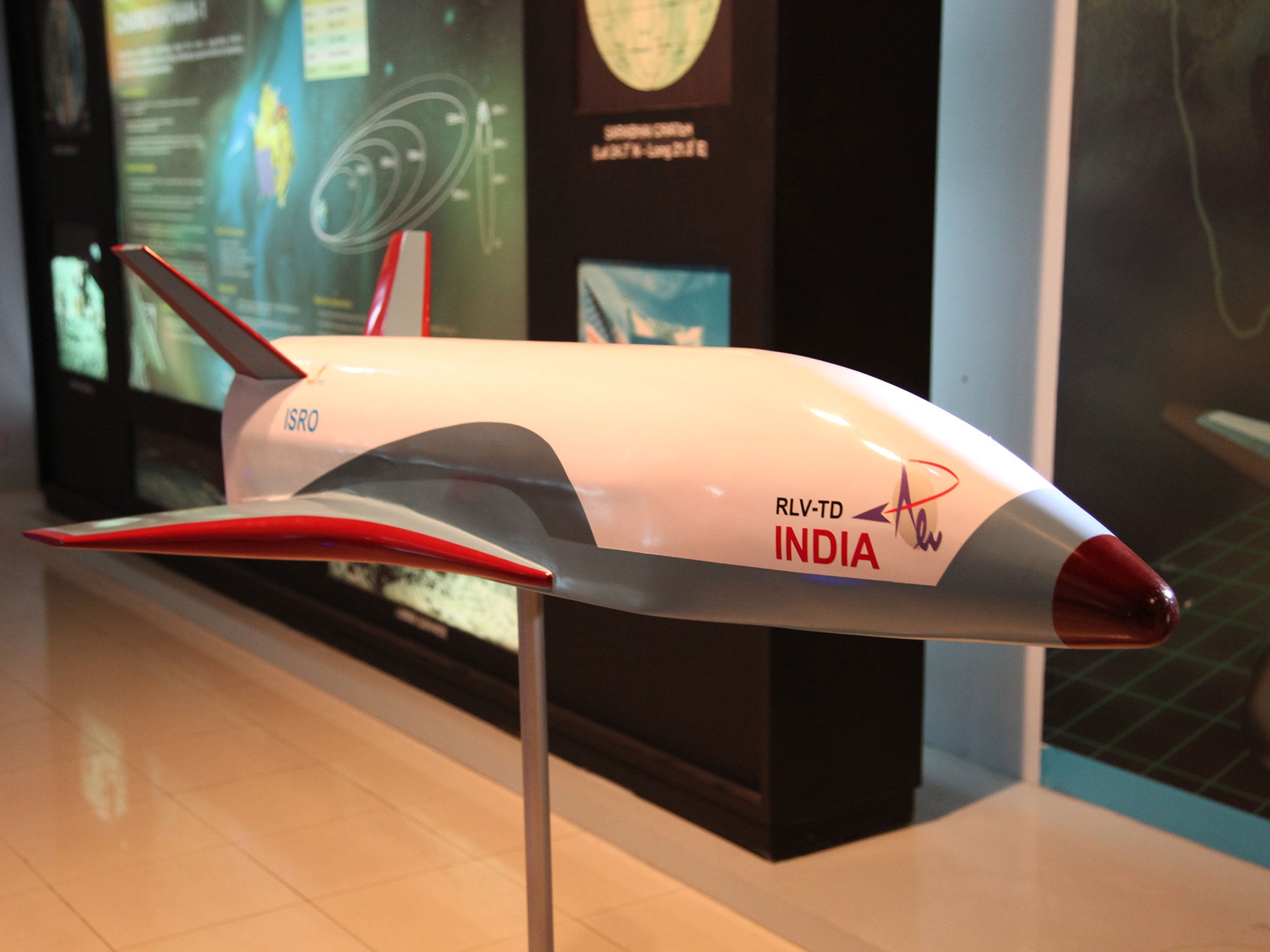India successfully launches its first space shuttle
The model shuttle reached an altitude of 43 miles before gliding down into the sea

India has successfully tested its first space shuttle, in a giant leap forward for the country's space programme.
The Re-usable Launch Vehicle (RLV), which took flight on Monday morning, was only a scale model - at around seven metres long, it was roughly a sixth of the size of the proposed final version.
However, the successful test is an important first step towards the goal of a fully re-usable shuttle which could be used to deliver Indian satellites into space.
Speaking to the Mint newspaper after the test, a spokesperson for ISRO, India's space agency, said: "Mission has been accomplished and all the parameters and trajectories were fulfilled."
Taking off from the Satish Dhawan Space Centre on the island of Sriharikota at 7 a.m, the 1.75-tonne RLV reached an altitude of around 43 miles.
The shuttle glided back to Earth, and finished its flight by splashing down in the Bay of Bengal. This first mission was only meant to assess its flight capabilities - further tests will be needed to perfect the landing.
Indian Prime Minister Narendra Modi congratulated ISRO on its achievement, writing on Twitter: "Launch of India's first indigenous space shuttle RLV-TD is the results of the industrious efforts of our scientists. Congrats to them."
He added: "The dynamism and dedication with which our scientists and ISRO have worked over the years is exceptional and very inspiring."
It may take some time for the full-scale version to enter operation, however. The test model was developed by a team of 600 researchers over the course of five years, at a cost of around £9.7 million.
A functioning space shuttle would dramatically reduce the cost of a single trip to space. Typically, space vehicles crash into the ocean or disintegrate in the atmosphere after delivering their payloads, meaning new craft have to be built from scratch for subsequent flights.
Being able to safely land a re-usable shuttle back on Earth would remove much of this cost, potentially slashing the price of a trip to space by 10 times.
Currently, ISRO is the only national space agency working on shuttle technology. Nasa's Space Shuttle was retired in 2011, while Russia's shuttle programme ended shortly after the collapse of the Soviet Union.
The RLV's successful test puts India in competition with private companies like SpaceX and Blue Origin, who are both working on re-usable rocket boosters.
Join our commenting forum
Join thought-provoking conversations, follow other Independent readers and see their replies
Comments
Bookmark popover
Removed from bookmarks